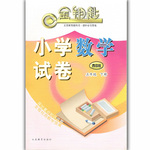题目内容
Actually,you can be _________ you want to be,a scientist,a doctor,an astronaut or a manager so long as you set your mind to it.?
A.whatever B.whoever
C.whomever D.whichever ?
A?
解析:
考查名词性从句。此题易误选D,考生认为后面给的是一个范围,但是从语意上看,应是说话人的列举,而并非就这么多,所以应仍是泛指,因此选用whatever。

 金钥匙试卷系列答案
金钥匙试卷系列答案The rising costs of health care have become a problem for man y countries in the world. To deal with this problem, it is recommended that a big part of the state health budget be used for health education and disease prevention instead of treatment. Actually, many kinds of diseases are preventable in many ways and preventing a disease is usually much cheaper than treating it. For example, people could avoid catching a cold if they dressed warmly when the weather starts getting cold. But many people get sick because they fail to do so, and have to spend money seeing a doctor.
Daily habits like eating more healthy food would have kept millions of families from becoming bankruptif the patients had taken ways for early prevention. For example, keeping a balanced diet, such as not consuming too much animal fat and trying to have enough vegetables and fruits, seems to be quite important.
One very effective and costless way of prevention is regular exercise, which is necessary for a healthy mind and body. Regular exercise, such as running, walking, and playing sports is a good way to make people feel better or reduce stress.
In addition, health education plays a key role in improving people’s health. By giving people more information about health, countries could help people understand the importance of disease prevention and ways to achieve it. For example, knowing one’s family medical history is an effective way to help keep healthy. Information about health problems among close relatives will make them aware of what they should do to prevent certain diseases through lifestyle changes, which will work before it is too late.
However, paying more attention to disease prevention does not mean medical treatment is unimportant. After all, prevention and treatment are just two different means toward the same effect. In conclusion, we could save money on health care and treat patients more successfully if our country spends more money on health prevention and education.
【小题1】What’s the best title of the passage?
| A.Prevention or Education? | B.Exercise or Illness? |
| C.Health or Illness? | D.Prevention or Treatment? |
| A.Unable to be cured. | B.Unable to pay one’s debts. |
| C.Stronger than ever before. | D.More successful than ever before. |
| A.dressing warmly can prevent diseases. |
| B.a balanced diet is cheaper than regular exercise. |
| C.the more health education, the better. |
| D.the government’s health budget should be increased. |

 camera from the cupboard, show how it took excellent pictures of my fellow shoppers... and when he started to introduce the special features, I interrupted to ask whether I needed to buy a carry-case and a memory card as well.
camera from the cupboard, show how it took excellent pictures of my fellow shoppers... and when he started to introduce the special features, I interrupted to ask whether I needed to buy a carry-case and a memory card as well.